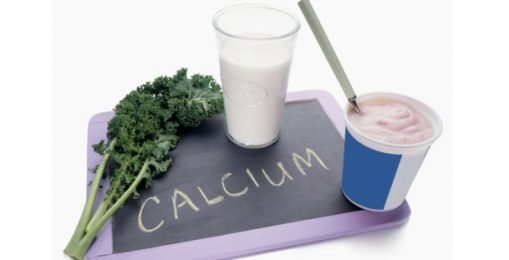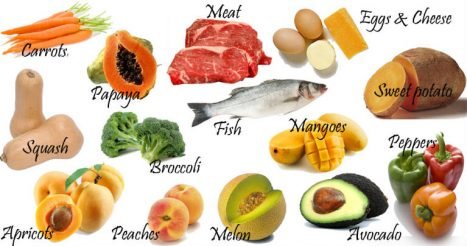
Are You Taking Enough Calcium? Let’s Check.

If you want to keep your bones healthy, vitamin D and calcium are the way to go about it. If you are getting the right amount, you will have healthy bones, hair, and skin. Different people require different quantities of vitamin D. The way we measure the required amount is by using something that is called an “international unit” or IU. The recommended daily vitamin D intake for adults aged 19 to 70 is 600 IU while for people who are older than 70 is 800 IU.
When it comes to calcium, it’s more complicated. The required daily amount varies depending on your gender and age.
- — Children aged up to 6 months require 200 milligrams
- — Children aged 7 to 12 months require 260 milligrams
- — 1 to 3 years — 700 milligrams
- — 4 to 8 years — 1.000 milligrams
- — 9 to 18 years — 1.300 milligrams
- All adults aged 19 to 50 require 1.000 milligrams
- Adult men aged 51 to 70 require 1.000 milligrams
- Adult women aged 51 to 70 require 1.200 milligrams
- Pregnant and breastfeeding women require 1.000 milligrams
- Pregnant teenage women require 1.300 milligrams
 How do you get more Calcium
How do you get more Calcium
 Both of these are found in many different kinds of food. The best way to get them into your system is to add dairy products—such as cheese, milk, and yogurt— to your diet, and vegetables such as kale and broccoli. There are also foods that are calcium-fortified, which means that the manufacturer added the nutrient into the food before distributing it. For example, cereal and orange juice are calcium-fortified, so they are a great way for people who can’t eat certain foods, like dairy, to get the recommended amount of calcium.
Both of these are found in many different kinds of food. The best way to get them into your system is to add dairy products—such as cheese, milk, and yogurt— to your diet, and vegetables such as kale and broccoli. There are also foods that are calcium-fortified, which means that the manufacturer added the nutrient into the food before distributing it. For example, cereal and orange juice are calcium-fortified, so they are a great way for people who can’t eat certain foods, like dairy, to get the recommended amount of calcium.
It’s quite easy to get the recommended 1.000 milligrams of calcium; all you need is a packet of oatmeal and a cup of orange juice (both calcium-fortified), a cup of yogurt and only a half a cup of cooked spinach.
 How to get more Vitamin D?
How to get more Vitamin D?
There are a couple of different ways to get enough Vitamin D. You’re more likely to have higher amounts of it during the summer months as it is also called “the sunshine vitamin;” it is produced by your skin in response to sunlight. However, during the winter months when there’s barely enough sun for your skin to acquire sufficient amounts of Vitamin D, there are many foods that are rich in it. To make sure you eat enough, add foods such as egg yolks, mushrooms, fish liver oils, tuna, salmon, shrimp, beef liver, and foods with added vitamin D in general. These foods are milk, yogurts, and orange juice. Since Vitamin D is quite common and easy to obtain, it is easy to get the required daily amount and even more than that.
If you, by any chance, aren’t getting enough of calcium and Vitamin D from food, try taking multi-vitamin supplements after consulting your doctor about them.
 Unfortunately, too much is also bad
Unfortunately, too much is also bad
 It’s not always better to get more than you need, especially if you’re using supplements to reach your recommended daily intake. When it comes to calcium, a high amount of it obtained from supplements can lead to kidney stones and heart problems. On the other hand, foods that are naturally rich in calcium, especially dairy products, protect against kidney stones. However, the risks of calcium-fortified foods have not been studied yet.
It’s not always better to get more than you need, especially if you’re using supplements to reach your recommended daily intake. When it comes to calcium, a high amount of it obtained from supplements can lead to kidney stones and heart problems. On the other hand, foods that are naturally rich in calcium, especially dairy products, protect against kidney stones. However, the risks of calcium-fortified foods have not been studied yet.
As for Vitamin D, you can’t get too much of it from the sun or food. However, when it comes to supplements, an excessive amount can upset your stomach and lead to weakness and constipation.
There is a way to check Vitamin D levels through a blood test. Some doctors practice this regularly while others don’t, but you can ask for it if you think you might be running low. People who are more likely to have a Vitamin D deficiency are those who don’t go out frequently, have darker skin, don’t eat foods that are rich in Vitamin D, and don’t take any supplements. If the test shows low levels of the vitamin in your blood, consult your doctor or a nutritionist on how you could change your diet or which supplements you should use.
A sufficient amount of vitamin D is important for the absorption of calcium, overall body growth, development of teeth and bones, and protection against certain diseases.
More in Nutrition & Weight Loss
-
`
Coping With Traumatic Stress Reactions – PTSD
Post-Traumatic Stress Disorder (PTSD) is a complex mental health condition that sometimes develops in the aftermath of a traumatic event. It affects...
November 19, 2023 -
`
Is Swimming in Cold Water Good for You?
Swimming is a beloved activity that provides numerous physical and mental health benefits. Swimming can be a fantastic workout, whether you’re...
November 15, 2023 -
`
Unlocking the True Benefits of Detox Water
Detox water has taken the health and wellness world by storm, promising a wide range of benefits that go beyond ordinary...
November 7, 2023 -
`
How Tom Brady Shed 10 lbs After Retirement
One of the NFL’s most celebrated athletes, Tom Brady, has always been a topic of discussion. Brady never fails to surprise,...
November 1, 2023 -
`
AI’s Hidden Toll on Our Brains
Artificial Intelligence (AI) has permeated almost every facet of our lives, from virtual assistants and recommendation algorithms to autonomous vehicles and...
October 24, 2023 -
`
What to Drink During a Workout
When it comes to getting the most out of your workout, proper hydration is key. What you drink during exercise can...
October 17, 2023 -
`
Wearable Technology Applications in Healthcare
The world of healthcare is evolving at an unprecedented pace, and wearable technology is one of the driving forces behind this...
October 10, 2023 -
`
Initiating and Integrating Exercise in Daily Life
Incorporating exercise into our daily lives is essential for maintaining optimal health and well-being. However, initiating a fitness routine and seamlessly...
October 10, 2023 -
`
Jason Momoa’s Workout Routine for Iconic Aquaman Look
We all remember the moment: The big screen lights up, waves crash, and out emerges Jason Momoa as Aquaman, with his...
October 8, 2023















You must be logged in to post a comment Login